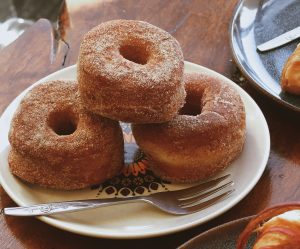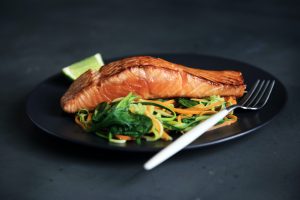 With the shorter days and longer, colder nights of winter upon us, it is in our best interest to follow nature to best support well-being. Of course, to some degree it is relatively impossible for most of us to alter most things about our lifestyle based on the seasons. Modern society does not follow, nor concern itself with the Tao. The Tao does not make money nor promise love, and even if it could we are not learned enough in it to follow with much accuracy. Nevertheless, we can still do what we can when we can, make minor modifications, certain mindful choices whenever possible, as I would be remiss to not share.
With the shorter days and longer, colder nights of winter upon us, it is in our best interest to follow nature to best support well-being. Of course, to some degree it is relatively impossible for most of us to alter most things about our lifestyle based on the seasons. Modern society does not follow, nor concern itself with the Tao. The Tao does not make money nor promise love, and even if it could we are not learned enough in it to follow with much accuracy. Nevertheless, we can still do what we can when we can, make minor modifications, certain mindful choices whenever possible, as I would be remiss to not share.
- Stay warm… but not too warm! While Chinese Medicine is all about warmth, encouraging vasodilation over constriction, if you live in a climate that has the four seasons it does not benefit your “wei qi” (immune system) to never experience the conditions and elements at all. This does not mean go out wearing belly t-shirts, short sleeves, or no socks at the first weather report above 40 degrees. On the contrary, hats and scarves are highly recommended, as is not being overly sedentary or sheltered. A sheltered existence, whether literally or figuratively, creates a weaker shell. For our purposes we might think of our immune system as our shell. Even if just for a commute or walk around the neighborhood, it is important to get outside on most days, bundle up, and not fall too victim to the privilege of modern climate control.
- Sleep earlier. While the recommended bedtime in Summer is 11pm, in Winter it is 10pm. This doesn’t mean get into bed at 10pm, watch a movie until 12, and fall asleep around 12:20. It means to be unconscious at 10:00. For those of us this presents a challenge for, the earlier you can do the better. There is a biomedical belief that for healthy sleep habits, consistency of bedtimes is most important. If one goes to sleep at 1am a few nights out of the week, one should do so every night. From a Chinese Medical perspective, this is a bit like recommending if you eat pizza once a week you should do so daily, so that it is never able to shock your microbiome. Instead, we recommend making the healthiest possible choice as often as possible. Also, don’t eat pizza every week. I love pizza too, but let’s be honest. It’s fast food.
- More (red) meat), less raw food. I know it feels like Chinese Medicine doctors are always trying to get people to eat more red meat and less raw food, but that really is not the case. The summer is a time for both raw foods and red meat in moderation. There can be more days of veganism or pescatarianism in Summer, as excessive beef is too warm for most bodies on hot days. By contrast, Winter is the coldest, most yin time of year. It is the time to protect our bodies’ “yang qi,” or metabolic fire, as we observe in so many other animals as a time to store fat (you can begin your South Beach diet in April). The oppressive cold of yin requires balance in the form of yang-warming ingredients—think steak cooked with garlic, onions, or ginger. If you cannot consume red meat it is advisable to accentuate the warming spices. Please note, this does not mean hot sauce or red pepper, which is a bit to healthy spices what coffee is to much needed rest. It will give a temporary surge of warmth, but in the long run will dry out the healthy stomach fluids, which will make it more difficult to absorb nutrients and generate natural yang inside the body. Spicy food is not “yang,” any more than yelling or shouting is “strong.”
For my part what I can offer for the next few months is more moxibustion, heat lamps, and heated tables when indicated. Burning the mugwort herb on acupuncture points generates healthy warmth and organ fluids in a way that no other modality can, in my opinion. In biomedical terms, it reduces cartilage damage from inflammation by modulating the NF-κB signaling pathway. It also drops pain via the suppression of Cox-2, which is an inductible enzyme that is highly expressed with pain. Recall, one of the oldest Chinese Medicine maxims: Where there is pain there is stagnation. Where there is stagnation there is cold. This is why my office smells like an incense store in winter.




 It’s not that gimmick diets don’t work. There couldn’t not be science behind them, just as there is in anything intentional in food or nature, anything we put into our bodies. The issue instead, why they get labeled as “gimmick,” is the allopathic, one-size-fits-all paradigm from which they are often recommended.
It’s not that gimmick diets don’t work. There couldn’t not be science behind them, just as there is in anything intentional in food or nature, anything we put into our bodies. The issue instead, why they get labeled as “gimmick,” is the allopathic, one-size-fits-all paradigm from which they are often recommended.
